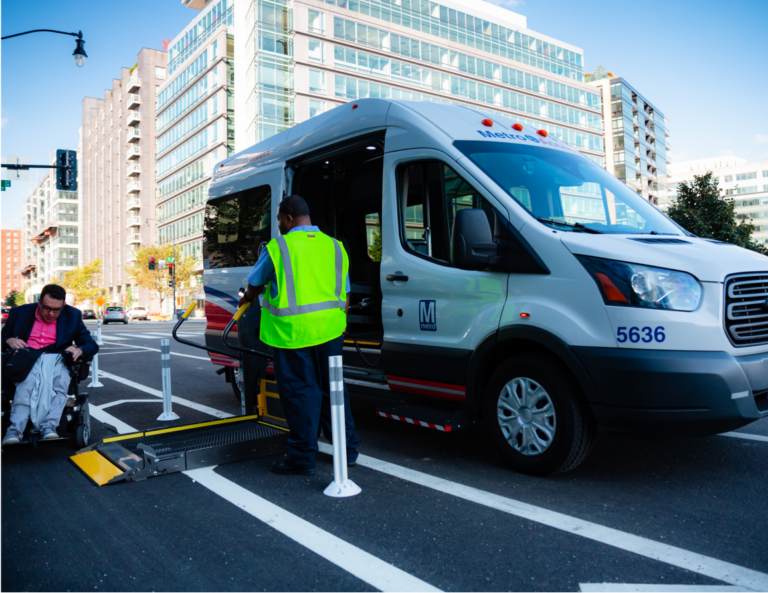
Public Transportation
Public transportation offers an affordable and accessible mode of transportation for everyone. By using public transportation, you have greater access to employment, education, healthcare, and other essential services, as well as greater opportunities to participate in social and recreational activities.
Find Transit Where You Live
Trouble finding accessible transportation? We created this interactive guide to help you navigate the complex transportation system within Michigan.
Visit Interactive Map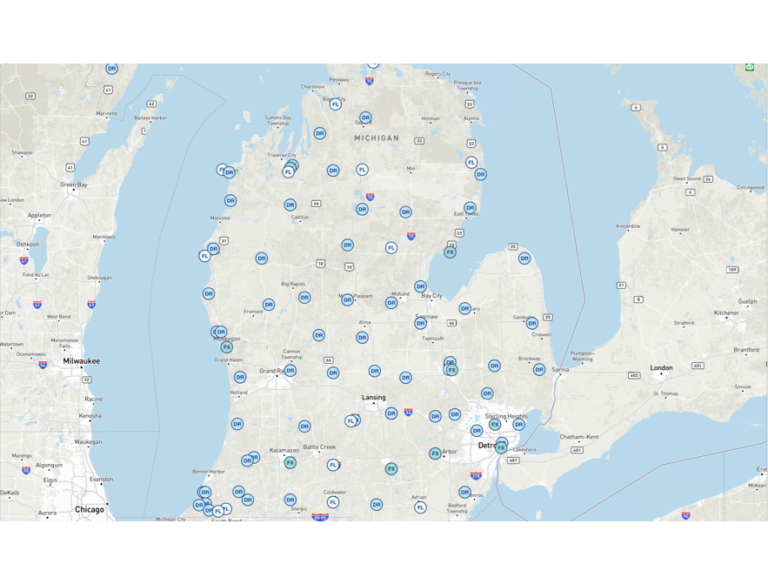
Which Mode of Transportation is Right for You?
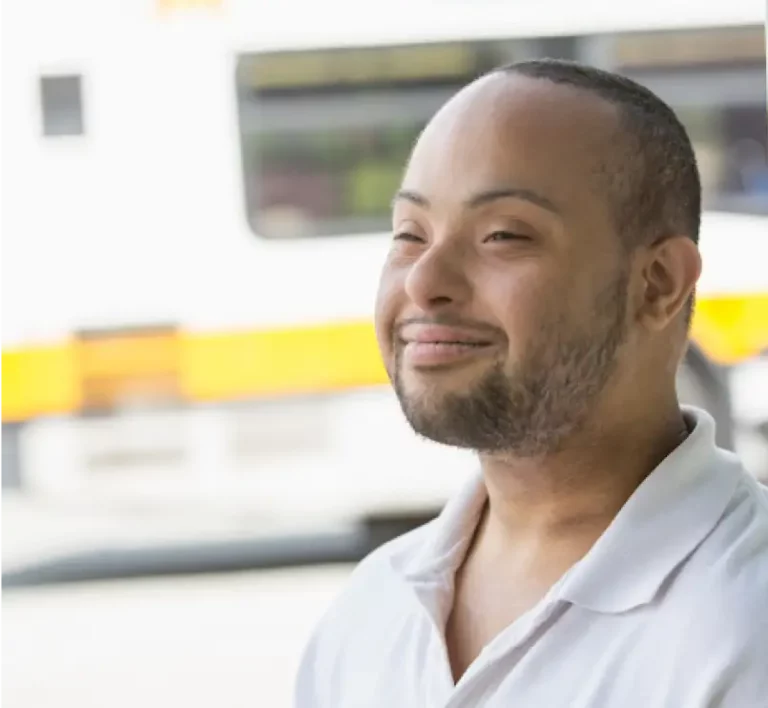
Fixed Route (FX)
Fixed vehicles travel on specific routes and schedules that don’t change.
Terms
- Routes – roads don’t change.
- Schedules – times and dates don’t change.
- “Stops” – locations where riders are picked up and dropped off.
FX Example
A fixed route in Detroit is called, “32 McNicols”. The 32 McNicols schedule runs every 60 minutes on the weekend. One of the “stops” on 32 McNicols is “Mack & University”.
Learn More About Modes of Transportation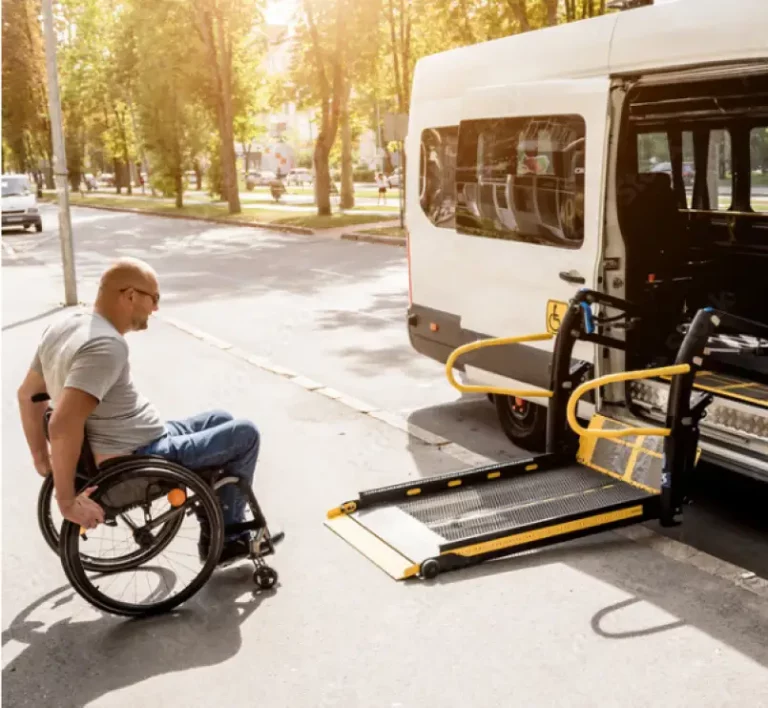
Demand Response (DR)
Demand response is when the riders request a ride.
Terms
- Origin – the location where you are picked up.
- Destination – the location where you are dropped off.
Scheduling
- Call your local transit office.
- Book online or through an “app”.
Types
- Door-to-door: vehicle will come right to your residence.
- Curb-to-curb: vehicle stops at the curb nearest to your residence or destination.
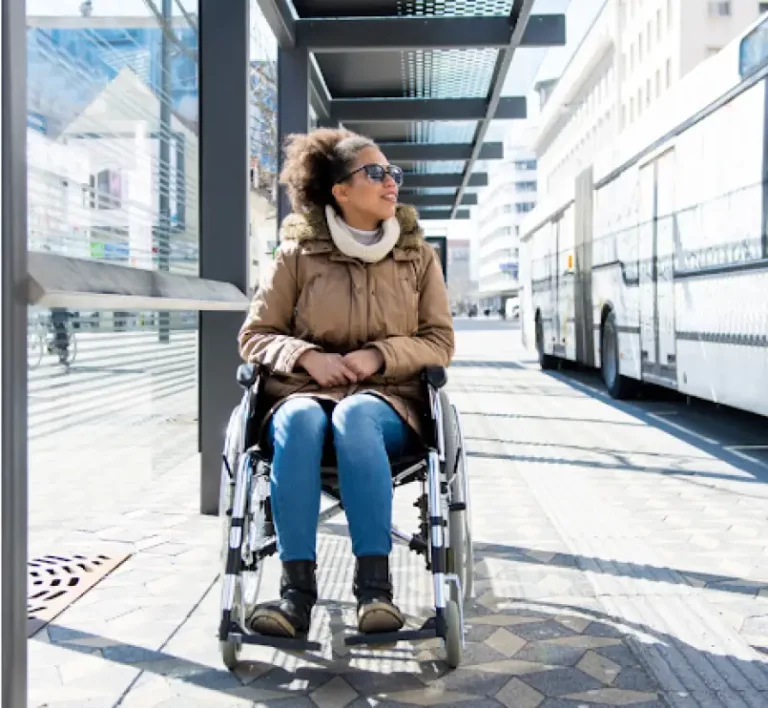
Flexible (FL)
Flexible route is when a vehicle will deviate from an established route for pickup/drop off.
FL Example
The Benton Harbor area has two flexible routes, called the “Blue Route” and the “Red Route”. These vehicles travel on specific routes, but riders can request “flex” stops at grocery stores, etc.
Learn More About Modes of Transportation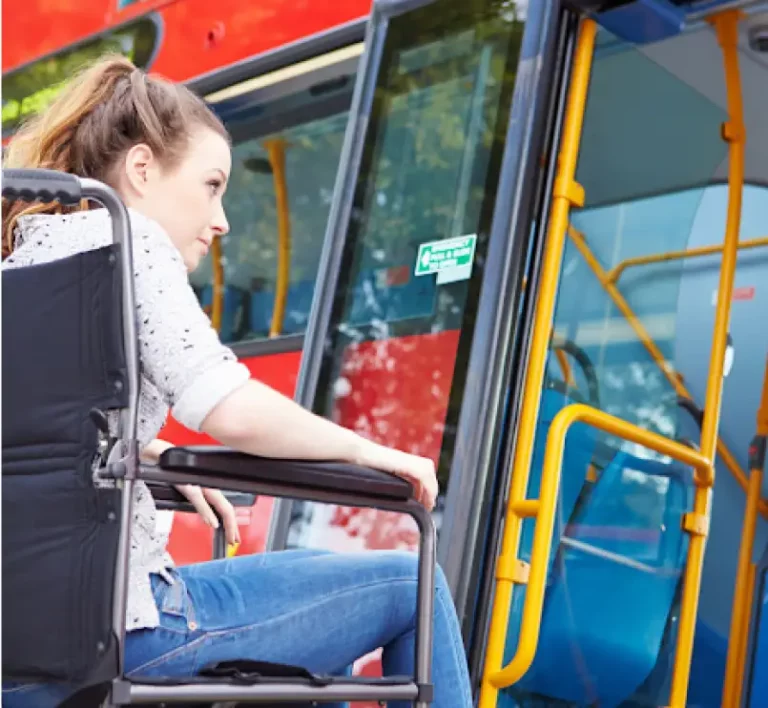
Paratransit (P)
Paratransit is a public, shared ride service that is provided by a transit agency who offers a Fixed Route (FX) system. The Americans with Disabilities Act (ADA) requires a paratransit option if riders are unable to use the fixed route system.
Verification
Transit locations may ask you to complete an application to verify why you can’t use the fixed route system.
Rules
- Paratransit is a door-to-door service that operates at the same times and areas as the Fixed Route (FX).
- You must live within ¾ miles from a fixed bus stop to use paratransit services.
Know Your Rights: Public Transportation Advocacy
Still have questions? View our Transportation Resources or Contact DRM.
Travel Assistance: Training and Planning
View ResourceNon-Emergency Medical Transportation
View ResourceTransportation Modes
View ResourceMichigan Universal Reduced Fare Card
View ResourceTransit Navigation and Accessibility Apps and Tools
View ResourceFeonix Mobility Rising Transportation Assistance Hub
View Resource
Transportation Riders United
TRU works to improve public transit in greater Detroit through education, engagement, and advocacy.
Website
Detroit People’s Platform Transit Justice Team
Striving for equity in Detroit’s Department of Transportation for essential riders.
Website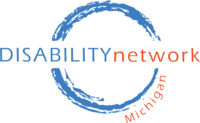
Disability Network Michigan
Disability Network is a statewide network for accessibility resources, information, and advocacy. Your local Disability Network can assist with learning about your local public transportation options and your rights using transit.
Website
Mobility for All Michigan
A coalition of mobility advocates working for a transportation system that moves people safely and efficiently, regardless of how they choose to travel.
Website
Programs to Educate All Cyclists
PEAC advocates for transportation equity for Michiganders with disabilities. Their travel training programs teach people how to ride bikes and public transit safely and independently.
Website
MyRide2
Connecting seniors & adults with disabilities to rides. Serves Oakland, Macomb, Wayne and Washtenaw
WebsiteYou have legal rights when it comes to public transportation. There are several laws requiring public transportation agencies to provide accessible services to individuals with disabilities. Civil Rights also protect people using public transit services from discrimination on the basis of race, color, sex, national origin, age, and religion.
ADA Requirements
Transit agencies must comply with ADA requirement that apply to them. To learn more, visit the National RTAP website for their ADA Toolkit.
ADA Coordinators
Before you file a complaint, it is strongly recommended you attempt to resolve your issue with the transit agency. Transit agencies have ADA Coordinators or Title VI Coordinators who can assist you. If your issue is still not resolved, you should file a complaint.
Filing a Complaint
If you need a complaint form or help filing out the form, the ADA and Title VI Coordinators are required to help you. If the agency does not provide a sufficient remedy, you can file a complaint with the Michigan Department of Transportation, and/or the Federal Transit Administration’s (FTA) Office of Civil Rights.
Frequently Asked Questions
Still looking to get your transportation questions answered? Contact DRM.
- Drivers are encouraged to stop for individuals using a mobility device, holding a white cane, or accompanied by a service animal.
- Passengers should telephone the dispatcher in advance to request a pick-up at a specific location along the route. Dispatch will alert the driver.
- Explain your request in advance.
- You may be required to fill out a reasonable accommodation request form. Your transit agency’s ADA Coordinator can assist.
- If your request is denied, without an explanation, you can call DRM.
- Some give a specific number of items (or bags).
- Some give general guidelines.
- Call your public transit if you have questions.
- Assistance - You can call your public transit for help.
- ADA Coordinator - Public transit agencies have “ADA Coordinators”. They help individuals with disabilities understand their rights using transit.
- Travel Training – some agencies provide travel training – learn more.
- Talk to your public transit agency. It’s best to start by telling the transit agency what happened. They may offer solutions if they are made aware of the problem.
- File an ADA complaint. For riders with verified disabilities, you can file an ADA complaint with public transit. They are required to have a complaint process. Complaint forms can be found on a public transit’s website or request a copy in the mail.
- If your public transit has failed to resolve your issue, even after filing a complaint, you may also file an ADA complaint with the Michigan Department of Transportation, and/or the Federal Transit Administration’s (FTA) Office of Civil Rights.
Share your Transit Story
DRM wants to hear from you! We can only advocate for change if we know the transportation barriers you’re facing. Let us know what is working and let us know what is not working. Whether you’ve had a negative or positive experience, please take a few minutes to share with us.
How Can We Help?
Contact Us Anytime
We want to hear from you! Whether you're looking for advocacy, have a question, or just want to connect, please reach out.